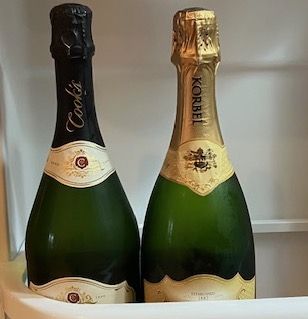Friends
Feeling Blue? Have You Forgotten How to Dance?
A Personal Perspective: The rejuvenating power of celebrating with friends.
Posted January 19, 2023 Reviewed by Michelle Quirk
Key points
- Sharing a meal, a moment, and a glass of champagne with friends is a powerful antidote to the isolation COVID-19 has handed us.
- The opportunity to spend time with friends is a special occasion worth celebrating.
- Spending time with friends is the best kind of self-care available.
Angeles Arrien, in her forward for Gabrielle Roth's book, Maps to Ecstasy: The Healing Power of Movement, offered an interesting insight:
In many shamanic societies, if you came to a medicine person complaining of being disheartened, dispirited, or depressed, they would ask one of four questions: "When did you stop dancing? When did you stop singing? When did you stop being enchanted by stories? When did you stop being comforted by the sweet territory of silence?

When I read this quote the other day, I had just learned of yet another COVID-19 variant and heard news that two of my good friends, who had been vaccinated and triple-boosted, had come down hard with COVID.
Although I loved the notion about the necessity of dancing and singing in order to dispel depression and live a joyful life, the idea that I could or should go out dancing with friends at that particular moment was a laugh.
Could there be other ways to chase away the blues?
One can dance and sing alone at home, as well as find some level of enchantment reading alone or binge-watching a new series on television. As for being comforted by the sweet territory of silence? Silence is restorative and necessary, but it’s best to have rich moments of silence and introspection, not years.
Which brought me to the two bottles of champagne lingering in my refrigerator.
For as long as I seem to remember, there has always been at least one bottle of champagne in my refrigerator waiting for a celebratory moment. Often, like now, there have been two.
Just for the record, I rarely, if ever, purchase champagne for myself. I have bought it for others, for sure, but have never bought a bottle for myself just because it was Tuesday or I was wanting for the taste of champagne.
In the past, friends have been known to show up for a dinner party with a bottle or two. We’d open one, make a toast, then put the other in the refrigerator and forget it was there. Sometimes a bottle would arrive as a gift of celebration for a new book, a new baby, or some other event worthy of sharing a bottle of champagne with friends.
Here's to the power of sharing...
That’s the trick with champagne. It needs to be shared. Celebrating alone just doesn’t work with champagne.
Once you open a bottle of champagne you should get out your best glasses, pour a round, and drink it with friends or family. All of it. If it’s not shared, it goes flat and might as well be left on the shelf to turn to vinegar.
A very wise friend recently gave my husband and me a split of champagne with instructions to drink it some night before dinner. Not a “special” night like someone’s birthday or New Year’s Eve, but just some everyday night.
So, we did. The split was enough for two glasses. The taste was reminiscent of celebrations past, and I was reminded of how much I enjoy sharing champagne.
That everyday simple shared meal made me reflect on Angeles Arrien’s wonderful quote about remembering how to dance and sing, be enchanted by stories, and enjoy the quiet moment.
When we cleaned up after dinner, the two bottles of champagne left in the refrigerator were a kind reminder that the shared moments of our lives are the richest.
Here’s my toast to 2023: May we never forget how to dance, to sing, to be enchanted by stories, or be comforted by the sweet territory of silence. And may we embrace every occasion that comes along to be rejuvenated by the laughter and conversation of friends and family over a shared meal and sip of champagne or a glass of non-alcoholic bubbly.


